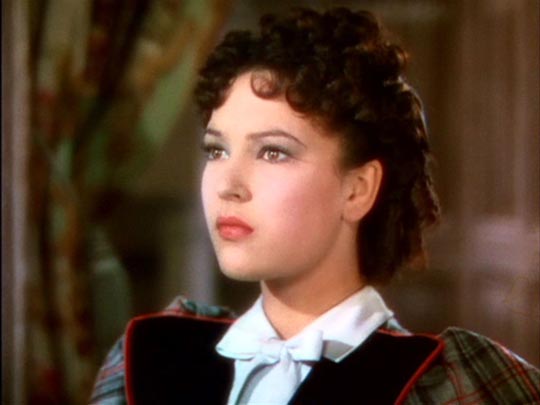In Egypt Clements contacts a doctor who was an associate of Culley. He asks to be branded in the forehead as a native, and has his skin stained. The doctor locates the regiment, and Clements gets on as a laborer. He slips away while they are hauling boats down the river. Back at the regiment, Richardson is on a scouting assignment and spots the enemy (Dervishes). He loses his helmet, and passes out from sun stroke, but is found by his comrades. The Dervish scouts report General Kitchener's army and their army heads out for them. (Some pretty impressive scenes of Dervish camel units.) In camp, Richardson awakes and is blind. He warns the advance unit of the approach of the Dervishes. They attack, but not before Clements gives the alarm. The Dervishes win the battle, but Clements and Richardson survive, though they are left for dead on the battlefield. Clements cares for him as they travel cross-country. Richardson is now delirious. When they near camp, he is seen, and captured on the assumption he is trying to rob Richardson.
Back in England, Culley talks to Duprez and tells her of Clements' instructions to him. Richardson is sent back to England, where he begins to learn to operate blind. Duprez agrees to marry him. Richardson tells the story of being saved by Clements (though he does not know who he is). He says that when Clements tried to rob him, he would have got nothing because he had nothing but a letter from her. When he shows the letter to her, there is a white feather in it. Smith, Duprez and Culley know that it means that Clement was alive at that time.
The captured British soldiers are cast into a dungeon, but Clements, still acting the part of a half-wit native, shows them a flute with "Don't despair" carved into it. When the prisoners are taken to the water hole, he is able to get near them because he is believed to be demented, and slips them a file. However, a guard sees him talking, and takes him to the commander. He is whipped unmercifully. In the dungeon, the two Britishers manage to get loose their manacles, just as Clements is brought in. They discover who he is. He tells them that the arsenal is right outside the gates. Through an interpreter, they organize the prisoners for an escape. In the desert, Kitchener's army and the Dervishes mass for a battle. (Great photography of a camel charge.) The Dervishes attack, and the British hold their fire until the last moment. The attack is broken. Clements and the prisoners overpower the guards and break into the courtyard. The Dervishes rally and attack again, and again are beaten back. The British begin to fire on the arsenal, but Clements finds a captured British flag and raises it on the wall.
In England, Culley reads the newspaper report of the battle to Richardson. He learns that two of his old comrades are still alive and is ecstatic. Then Culley continues reading, and Richardson realizes that the native man was Clements. He dictates a letter to Duprez, telling her that a German doctor can restore his sight, but it will require a long stay there, which, of course, is not true, but it releases her from their engagement.


Duprez and Clements

Duprez
No comments:
Post a Comment